Data Export Setup
You can export your Kissmetrics raw data as JSON files. Because of the amount of data to export, we’ll make the JSON files available to your Amazon S3 bucket.
1. Sign in to (or sign up for) Amazon Web Services
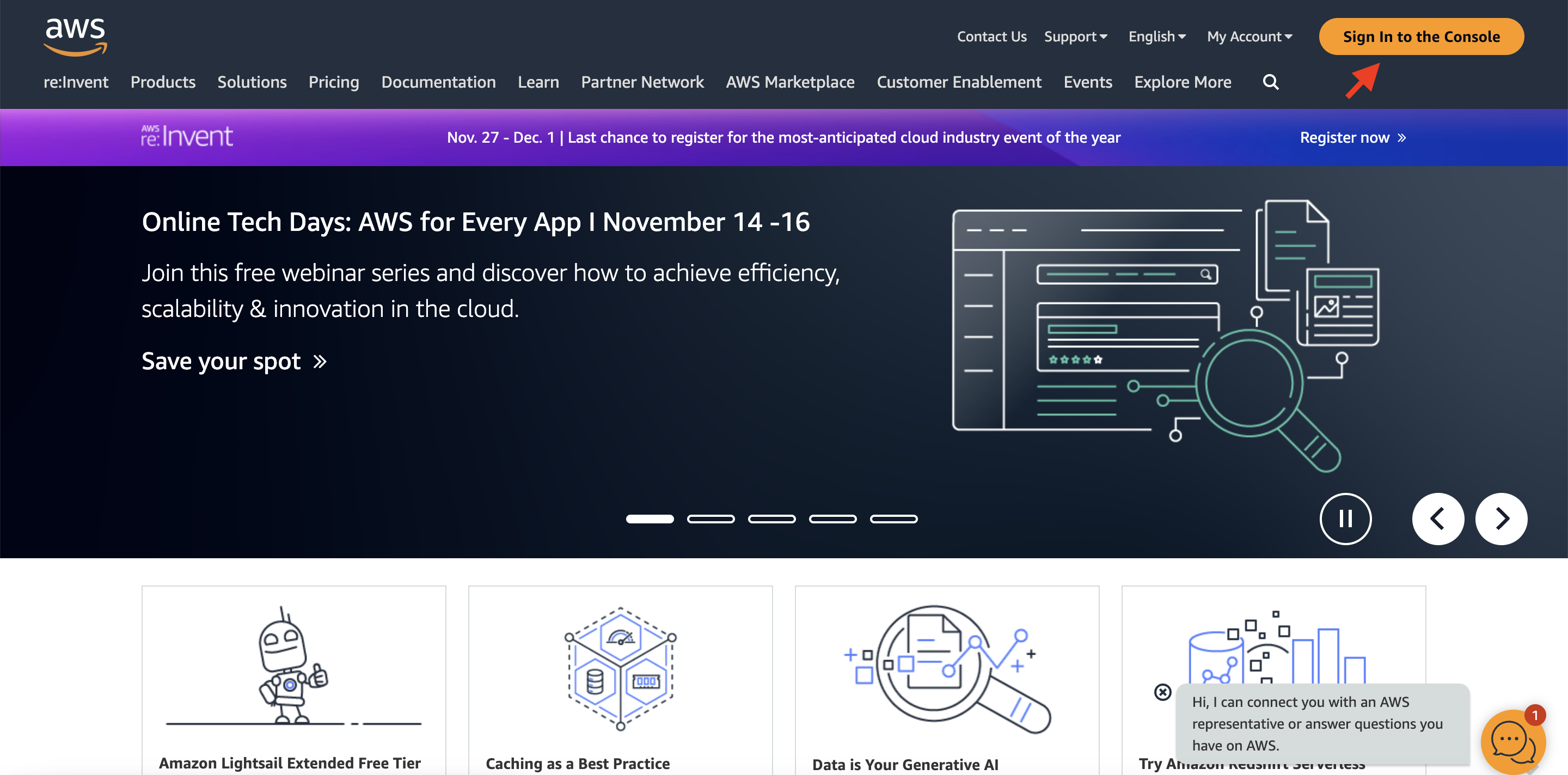
If you already have an existing Amazon Web Services account, navigate to aws.amazon.com and sign in. If this is your first time going to AWS, you can go through a quick process of signing up for an account. It’s free to get started.
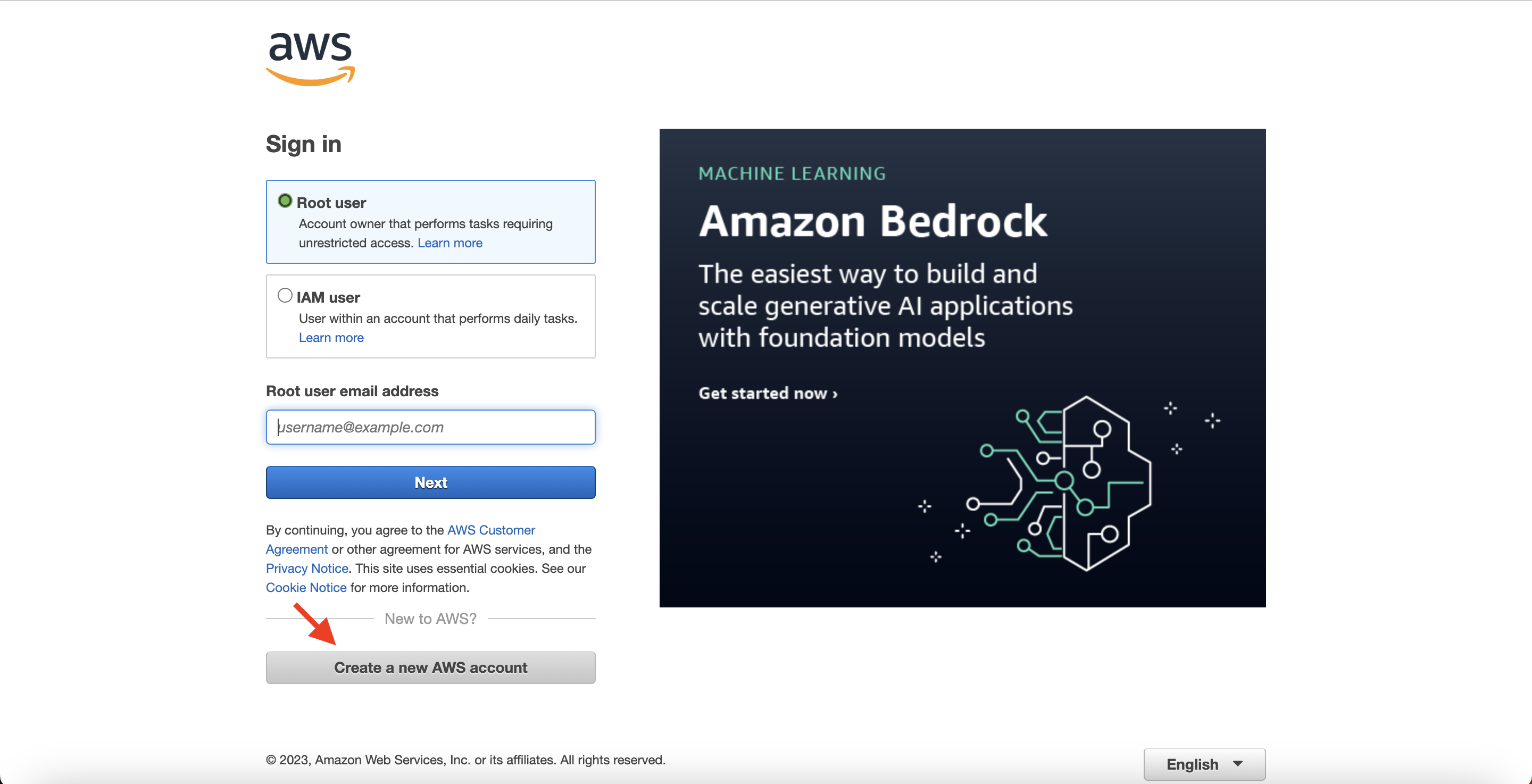
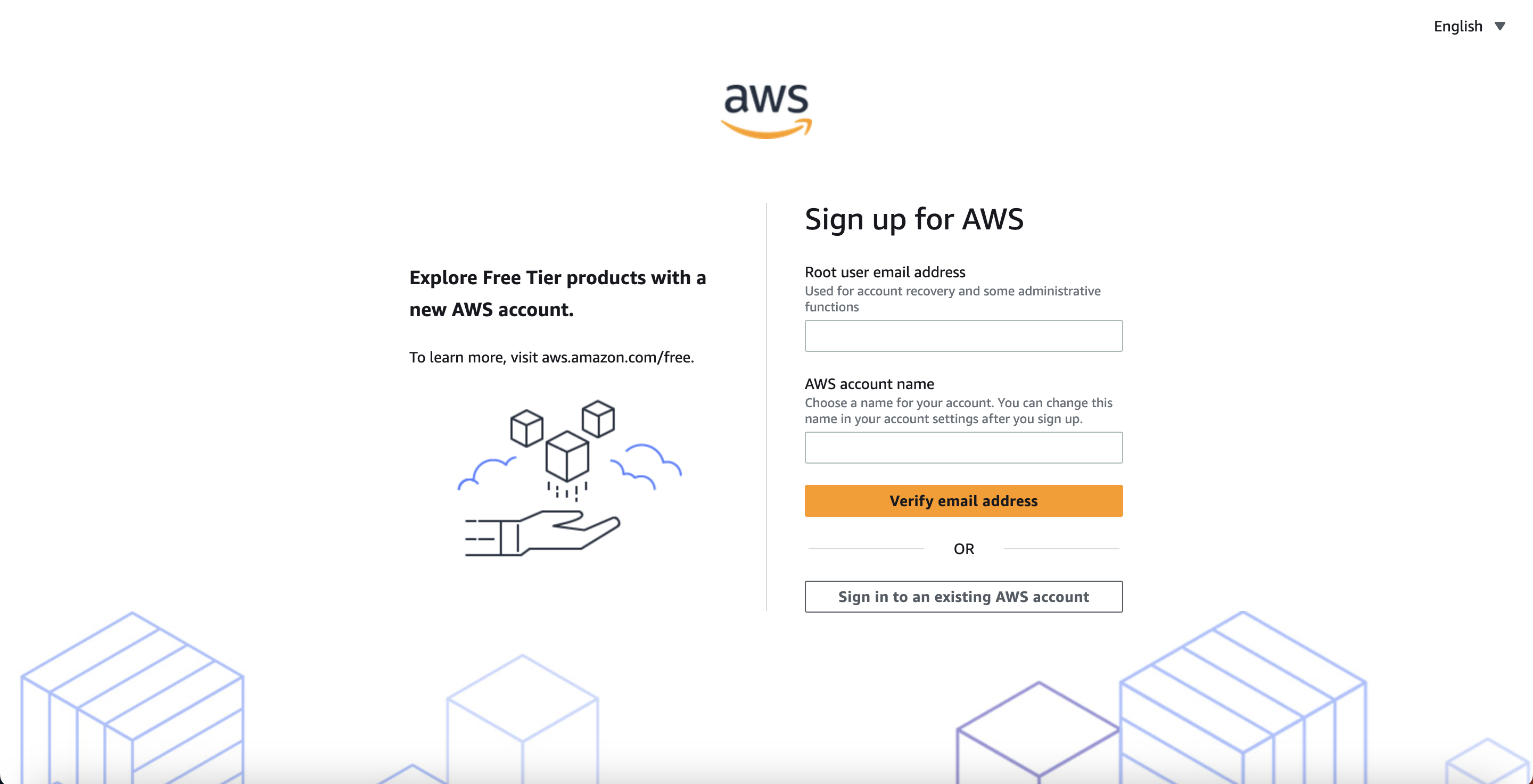
Not sure if you have an existing AWS account? Contact the developer who initially setup Kissmetrics for you and ask if there is an existing AWS account. If no one has ever heard of an AWS account, you can most likely go ahead and create one.
2. Create an S3 Bucket
You will be directed to the AWS dashboard after signing in or signing up. You’ll be working with S3:
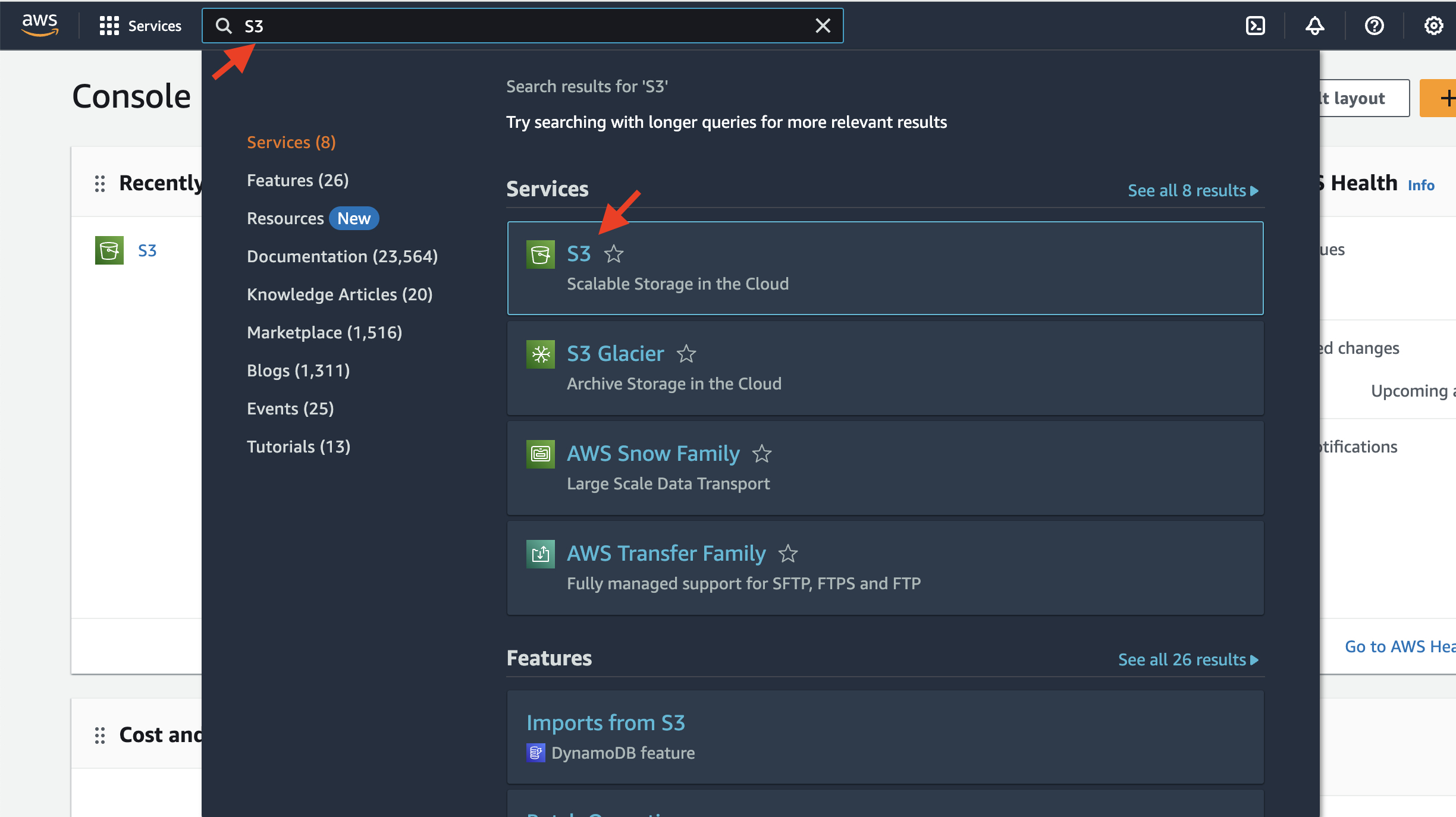
Click “Create Bucket” button and name your bucket. You will refer to this bucket name later.
If you intend to export data from several of your account’s sites, then please create a different bucket for each of them
- Make sure to create the bucket in the “US East (N. Virginia)” region.
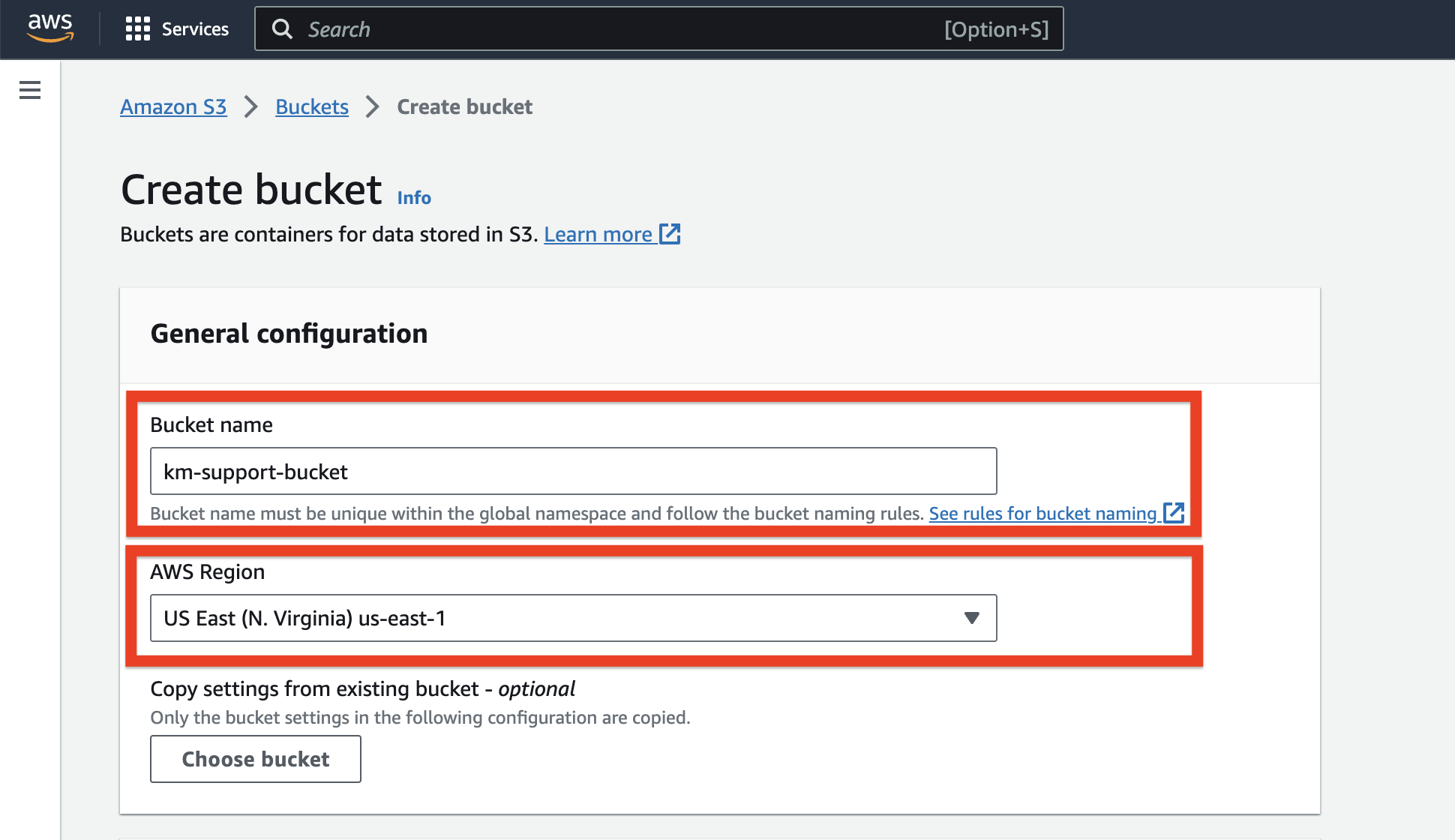
3. Give Kissmetrics permission to access the bucket.
- Now that you’ve created the bucket, you need to give Kissmetrics permissions to access it.
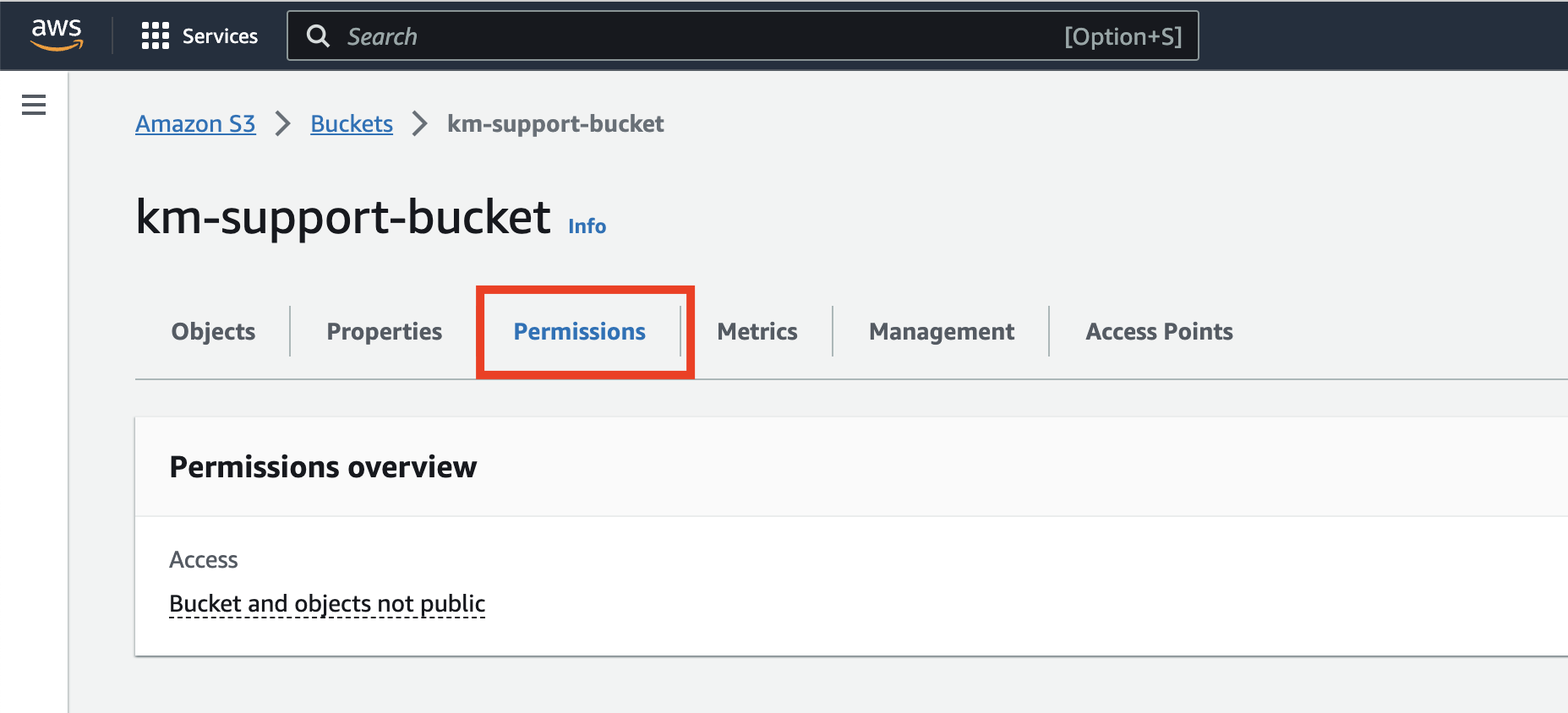
- Scroll down the Permission section and select to edit theBucket policy
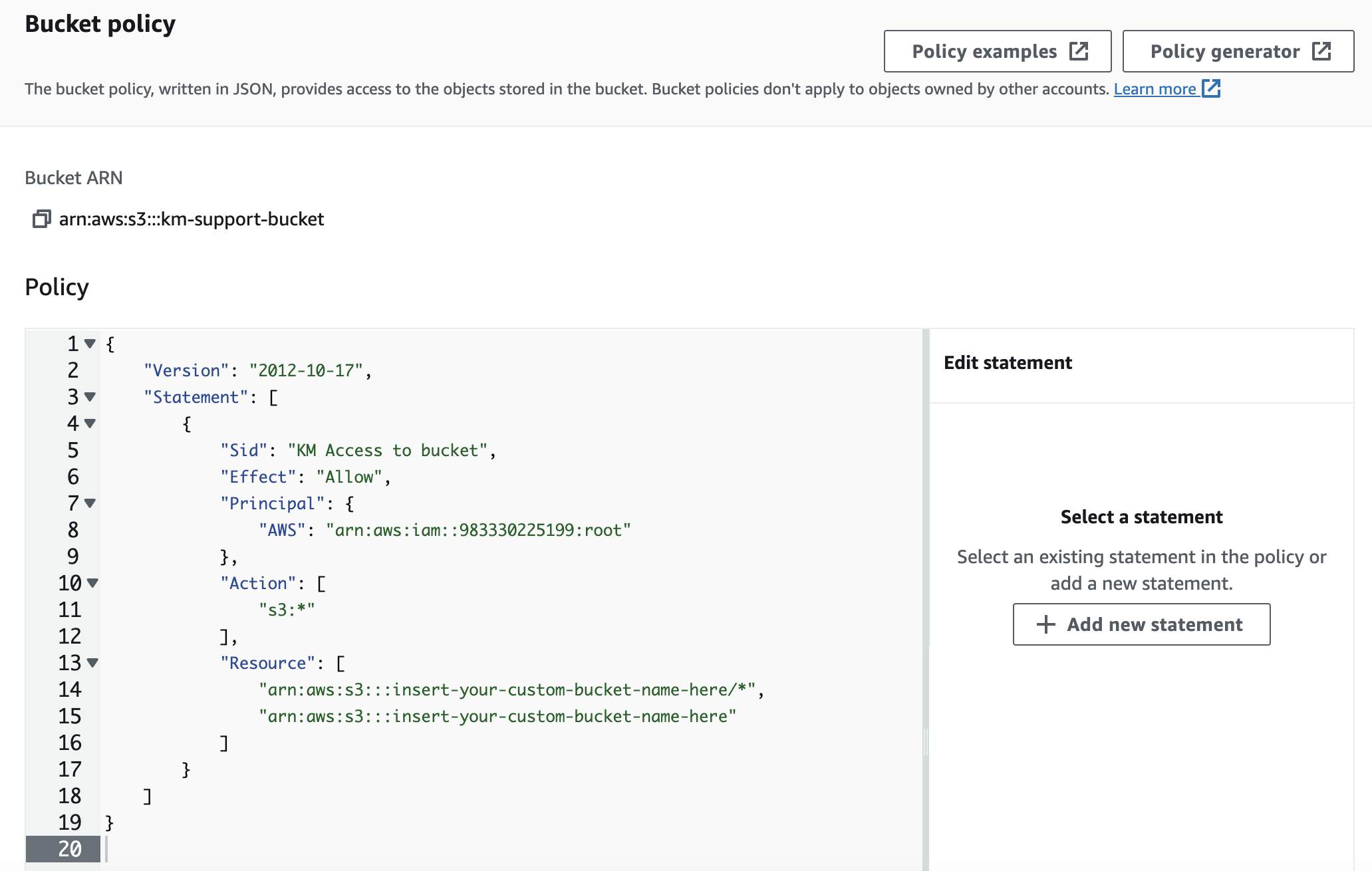
- Then add the bucket policy seen here.
{
"Version": "2012-10-17",
"Statement": [
{
"Sid": "KM Access to bucket",
"Effect": "Allow",
"Principal": {
"AWS": "arn:aws:iam::983330225199:root"
},
"Action": [
"s3:*"
],
"Resource": [
"arn:aws:s3:::insert-your-custom-bucket-name-here/*",
"arn:aws:s3:::insert-your-custom-bucket-name-here"
]
}
]
}
- Replace the
insert-your-custom-bucket-name-hereparts with the name of your bucket like shown on the example.
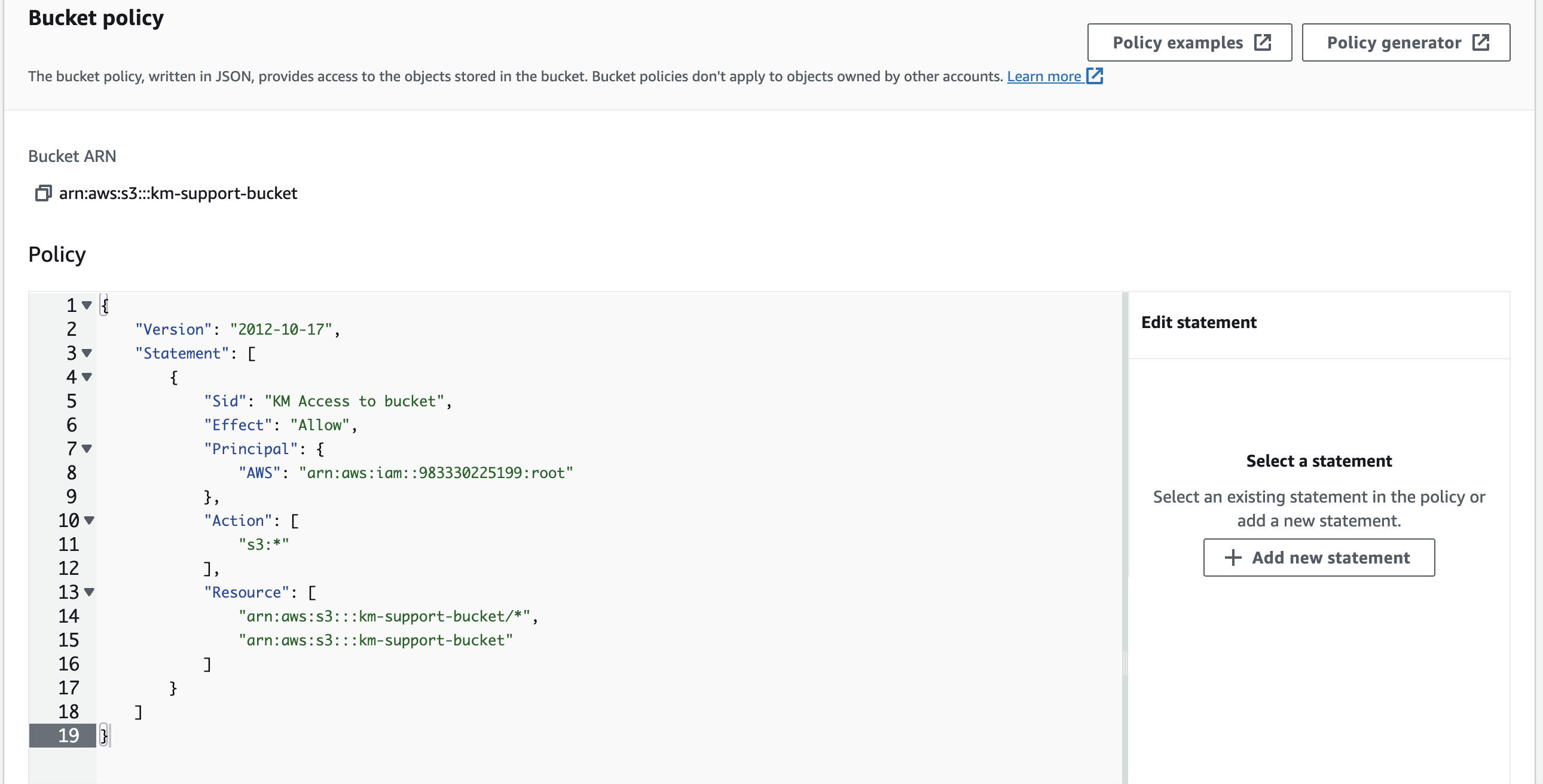
- Proceed to "Save Changes".
4. Go to Kissmetrics and enable data export
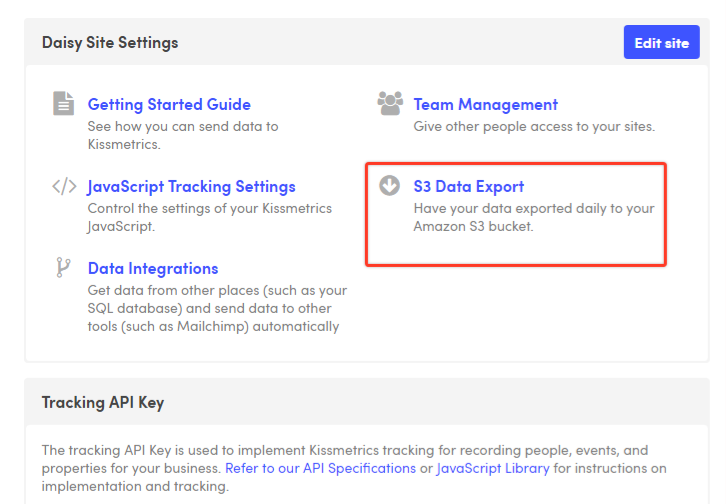
Go back to Kissmetrics Product Settings and navigate to S3 Data Export.
5. Enter your bucket name from earlier and click verify to connect your KM account with your AWS bucket
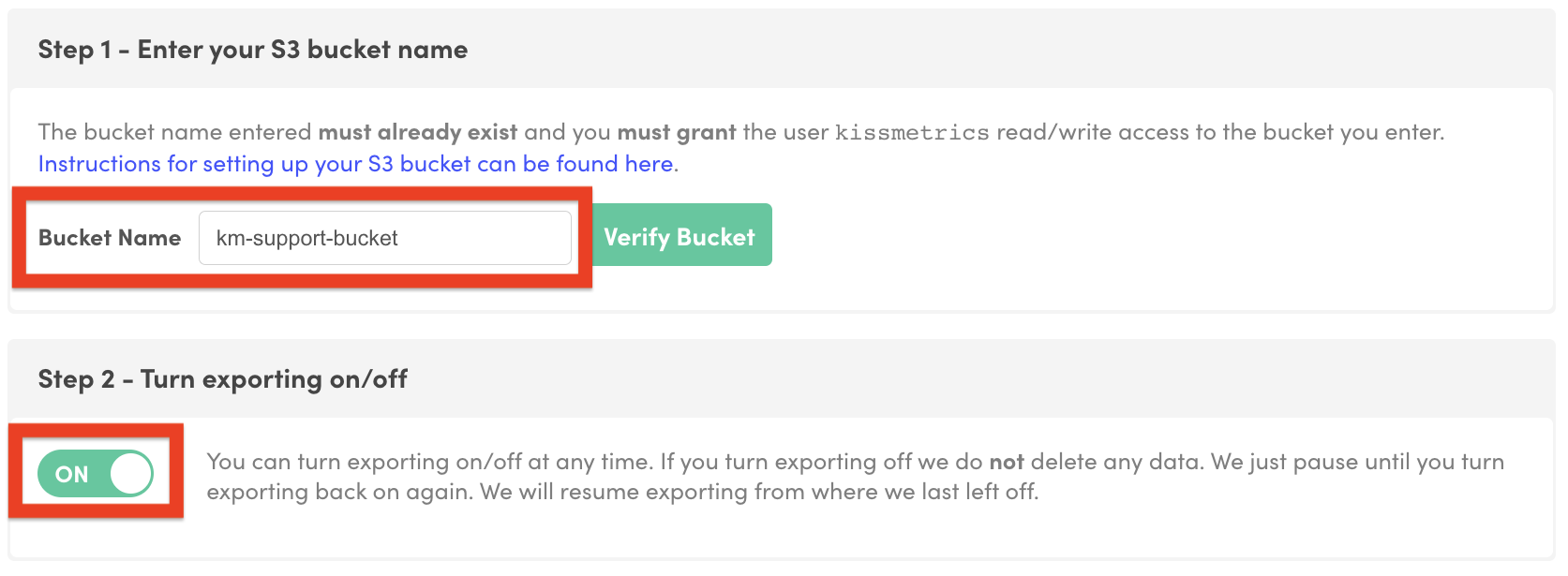
Turn exporting “On” when ready to start data exporting. Your raw event data will be placed in your AWS bucket, in the form of JSON files representing each day’s worth of data.
If you wanted to just set up data exporting and turn it on later, you can leave data exporting “Off”.
You’re all set for Data Export!
Updated 9 months ago
